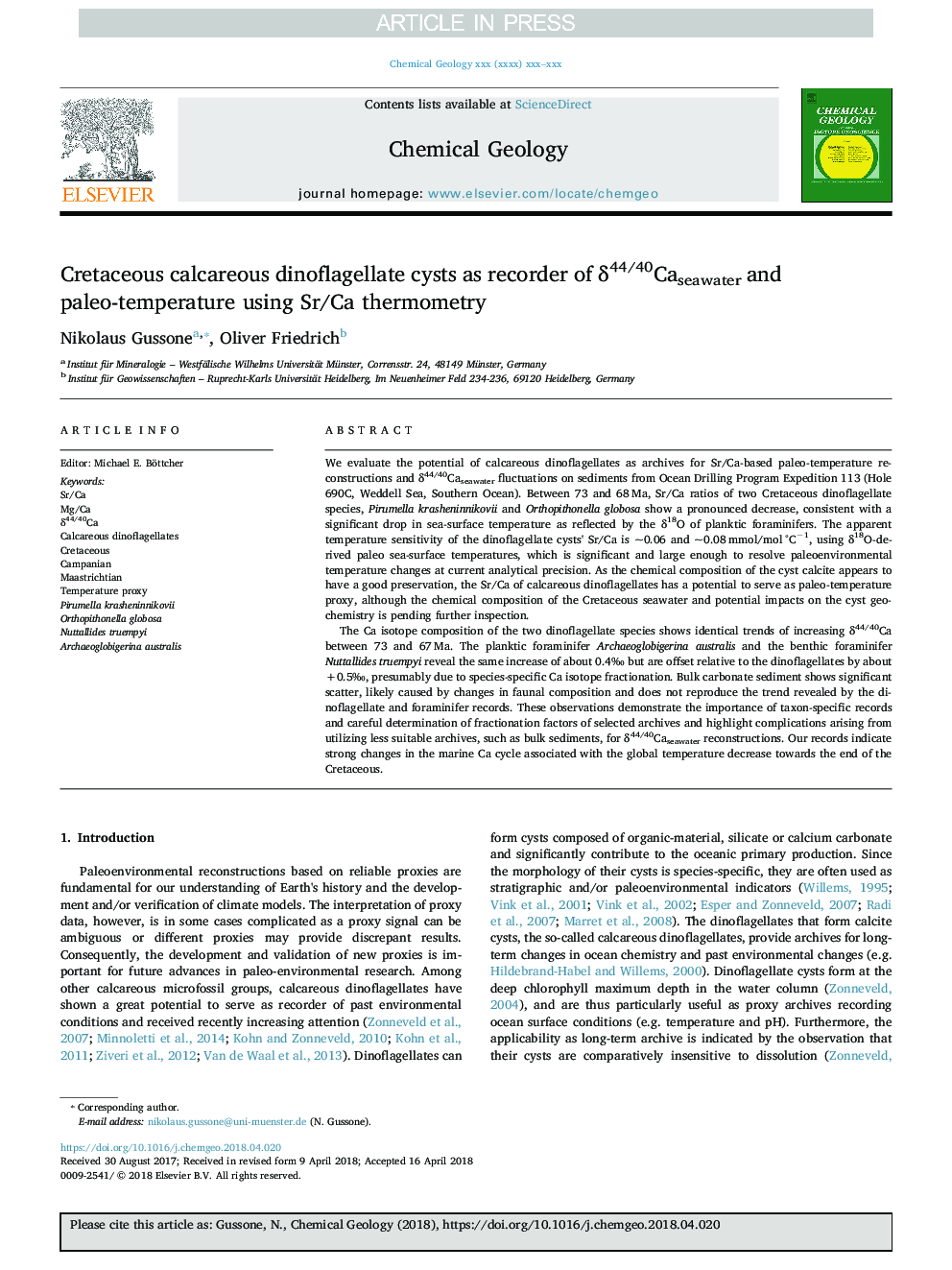| Article ID | Journal | Published Year | Pages | File Type |
|---|---|---|---|---|
| 8910212 | Chemical Geology | 2018 | 11 Pages |
Abstract
The Ca isotope composition of the two dinoflagellate species shows identical trends of increasing δ44/40Ca between 73 and 67â¯Ma. The planktic foraminifer Archaeoglobigerina australis and the benthic foraminifer Nuttallides truempyi reveal the same increase of about 0.4â° but are offset relative to the dinoflagellates by about +0.5â°, presumably due to species-specific Ca isotope fractionation. Bulk carbonate sediment shows significant scatter, likely caused by changes in faunal composition and does not reproduce the trend revealed by the dinoflagellate and foraminifer records. These observations demonstrate the importance of taxon-specific records and careful determination of fractionation factors of selected archives and highlight complications arising from utilizing less suitable archives, such as bulk sediments, for δ44/40Caseawater reconstructions. Our records indicate strong changes in the marine Ca cycle associated with the global temperature decrease towards the end of the Cretaceous.
Related Topics
Physical Sciences and Engineering
Earth and Planetary Sciences
Geochemistry and Petrology
Authors
Nikolaus Gussone, Oliver Friedrich,
